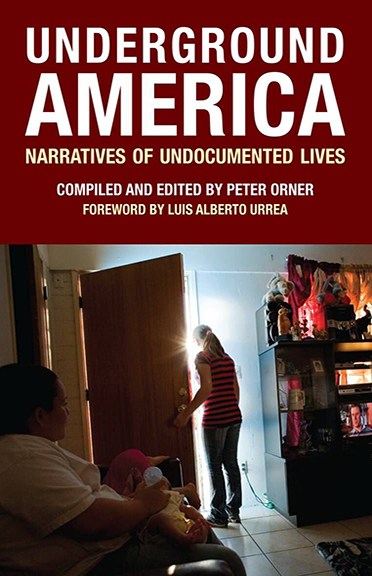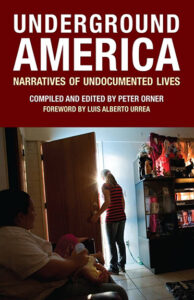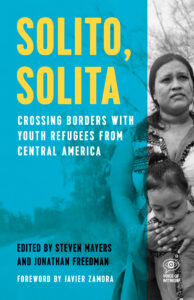The Voice of Witness book series amplifies the stories of people directly impacted by—and fighting against—injustice. We use an oral history methodology that combines ethics-driven practices, journalistic integrity, and an engaging, literary approach.
The books explore issues of inequity and human rights through the lens of personal narrative. Each project aims to disrupt harmful narratives by supporting historically marginalized or silenced communities to tell their own stories in their own words.
Book clubs are useful tools for engaging and interacting with these oral histories and the issues they highlight. Find our handout with guidance on planning and facilitating one here.
Use the questions below to start a book club for Underground America: Narratives of Undocumented Lives.

Discussion Questions:
- In his introduction to Underground America, Peter Orner writes: “The law forces undocumented people to live in a state of permanent anxiety.” How can immigration status affect a person’s physical and mental health? In what ways might this anxiety manifest in
their everyday life? - After describing her difficult experience in detainment, Diana says, “In Peru there was a lot of terrorism and war but I had always heard that this country was concerned with human rights. That’s how so many people talk about the United States, especially Americans. But there were no rights for us in jail, or anywhere.” How does the dominant narrative of the United States compare or contradict with the realities that individuals in detainment face?
- Mr. Lai crisscrossed the country to find work, listing over a dozen states as former places of employment. In some cases, he only remained in place for a few days. What is the role of workers like Mr. Lai in the economy of the country? How do you think this constant displacement affects the job market? How does it affect undocumented workers?
- Many narrators, like Liso and El Curita, describe mistreatment and abuse from their employers and the lack of legal aid available to them. What, if any, protections and support exist for undocumented laborers? What protections and support should exist? Why?
- Olga’s story describes the intersection of marginalized communities that her daughter, Vica, represented. How were each of Vica’s struggles related to, and compounded by, her identity? What does her experience tell you about the roles of race, gender, sexual orientation, and other factors in our society?
- Abel is an ethnic Mayan who fled Guatemala. Of his experience as an undocumented immigrant, he says, “And since we are indigenous, we have no borders. Though we speak English, we are indigenous. So, for me, justice doesn’t exist here. The blows we receive are more than physical, they’re psychological.” Are immigration and citizenship universal concepts? Who creates the borders that define nations? What rights exist for indigenous peoples and their claims to land?
- According to the U.S. Department of Education, approximately 65,000 undocumented students graduate from U.S. high schools every year, like Lorena and Adela’s daughter Estrella. What legal protections exist for undocumented minors? How do Lorena’s narrative,
her afterword, and Estrella’s story connect with current political discussions surrounding undocumented students? - Farid’s attempts at residency failed twice: the death of his wife before the two-year marriage requirement, and the denial of asylum based on an expired visa. Keeping in mind his fear of persecution in Iran, what are Farid’s remaining options?
- Saleem, Hector, Polo, Julio, Yogesh, Nsombo, Rose, and Enrique have shorter narratives in the book. What do each of their stories highlight, and what can you imagine is left out? If you had the opportunity, what would you want to ask these narrators?
- How have the narratives in Underground America challenged or expanded your understanding of undocumented immigrants in the United States? Did anything surprise you? Has it impacted your position on immigration in your country?



